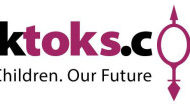A major key to bringing in new #business is through word of mouth marketing. If a customer is super happy about the product or experience you offer, they’re likely to recommend you to their friends and colleagues. However, a happy customer does not necessarily mean a vocal customer. This is why companies of all sizes need to incorporate a successful referral strategy into their marketing mix.
Word of mouth marketing is a force to be reckoned with, especially in today’s consumer sharing universe. The way we discover and share information has changed. With one click, we can share, pin, tumble, yelp, and tweet our opinions, likes and dislikes. This change gives businesses an opportunity to harness the opportunity to harness the power of their most effective sales force – their customers and why shouldn’t they? Customers tend to trust their friends over businesses, according to a recent study, an astounding 92% of customers trust recommendations from their friends while another study revealed that 65% of new business comes from referrals.
In many businesses, referrals are viewed as an organic by-product of the company successfully doing its job. If you exceed customer expectations, it’s natural to assume they’ll return the favour by singing your praises to their networks. If you blow then away with world-class customer service, you can expect a flood o f social media goodwill. However, the problem with these assumptions is that while referrals do happen organically, they’re never a given, even if a customer loves your products and services. A recent study from the Texas Tech University found out that although 83% of customers say they’re willing to provide referrals after a positive brand experience, only 29% percent actually do. So, how can businesses close that gap? Here’s a list of referral marketing “dos” and “don’ts” that will help you proactively convert happy customers into reliable revenue-drivers:
f social media goodwill. However, the problem with these assumptions is that while referrals do happen organically, they’re never a given, even if a customer loves your products and services. A recent study from the Texas Tech University found out that although 83% of customers say they’re willing to provide referrals after a positive brand experience, only 29% percent actually do. So, how can businesses close that gap? Here’s a list of referral marketing “dos” and “don’ts” that will help you proactively convert happy customers into reliable revenue-drivers:
DOs:
- Do Give Customers The Tools They Need To Promote Your Company
For referral marketing to work, you can’t expect customers to invest time and energy into developing tools and assets to support your brand. Instead, you need to make the referral process as easy as possible. This might mean creating a hash tag that customers can share on Twitter, or developing email templates that ensure ambassadors use the right language and share the right landing page URL.
- Do Think About Whom (And How) You Ask For Referrals
To operate a successful referral marketing program, you must consider who you’re targeting, where those people are most active, and which incentives are most likely to influence specific actions.
- Do Incorporate Referrals into Your Overall Marketing Strategy
The best referral-marketing programs share a common thread: referrals are embedded into every aspect of the user experience. Referrals calls to action are included in newsletters and blogs.
DON’Ts
- Don’t Expect Customers to Always Be Thinking About You
One of the biggest mistakes companies make with referral marketing is assuming customers always have their brands on top of their minds. If you’re not constantly looking for opportunities to engage your most loyal customers, then you’re missing a huge opportunity to encourage and incentivize conversations about your products or services.
- Don’t “Set It and Forget It”
Once you get a referral marketing program up and running, it’s easy to fall into the trap of assuming the engine will run itself. Like all strategic marketing initiatives, referral-marketing programs thrive in an environment of perpetual optimization.
Here are five things to do to sustain a successful referral strategy:
- Ask for referrals as a way of life, not just a means to an end.
- Help customers give you referrals by teaching them how to tell others about you and your business. In
 structions must be short and sweet, like an elevator pitch.
structions must be short and sweet, like an elevator pitch.
- Be worthy of a referral. Take good care of a referred prospect, even if you don’t make a sale.
- Thank the referrer every time, in person if possible, regardless of the result of the referral. Remember, getting a referral is success.
- If you want to get referrals, give them to others.
CONCLUSION
A referral strategy is an essential part of your marketing plan, so keep it in mind! In order to generate referrals, you must offer an amazing product, an overall excellent customer experience, and keep monitoring the strategy as you go along.
Latest posts by Daniel (see all)
- Job Opening: Temporary Assistant to ABA Consultant - July 19, 2016
- StartUp Story: “Outside, That’s Where The Real Stuff Is’’ – Rabiu Musah CEO Asuqu.Com - June 15, 2016
- WEEKLY BULLETIN: GRANTS WRITING WORKSHOP EXPERIENCE IN PICTURES - June 10, 2016
Tags: business

























